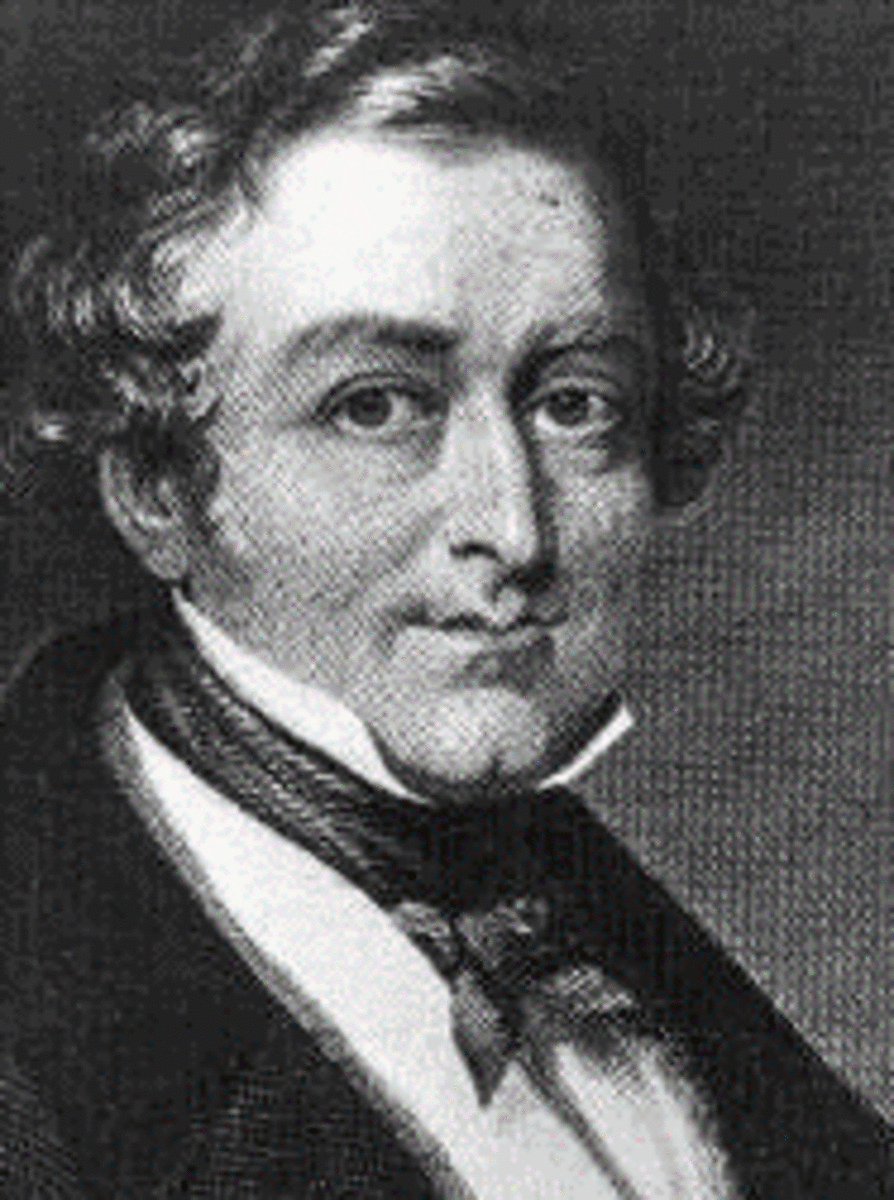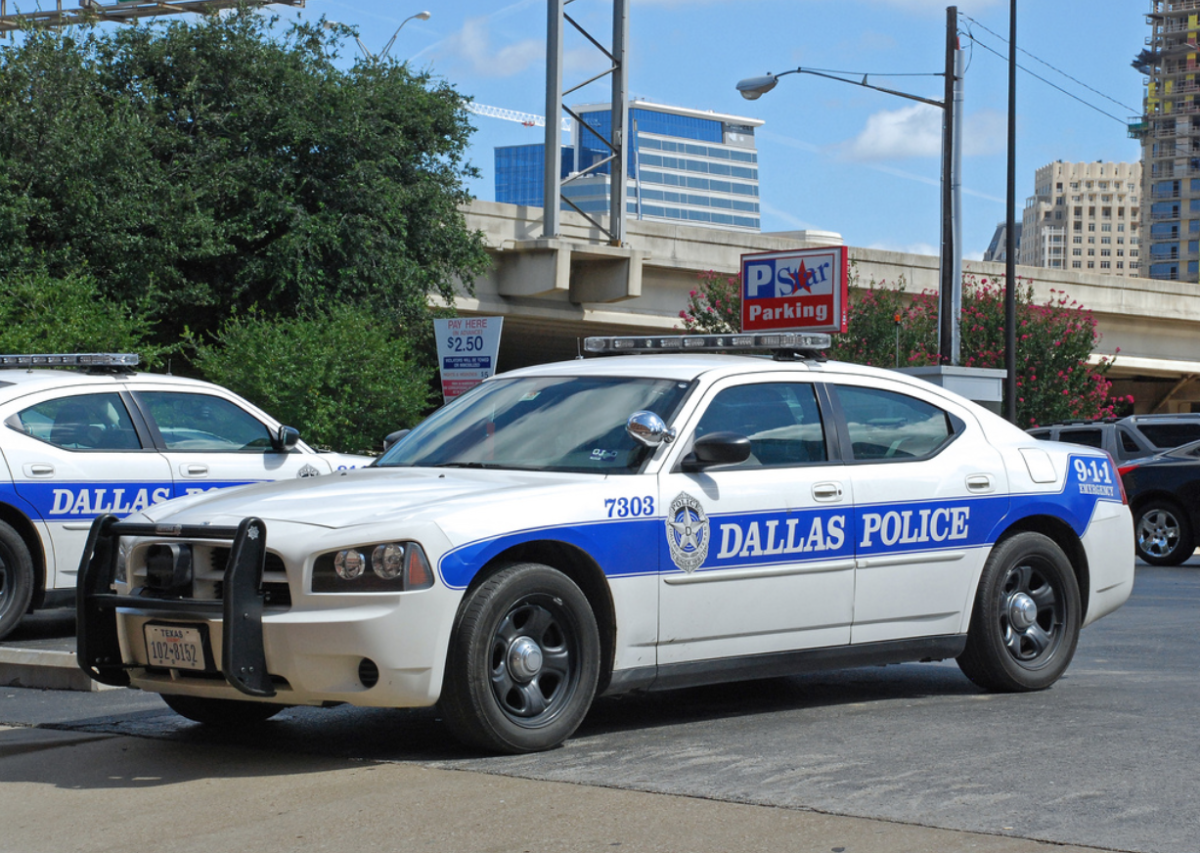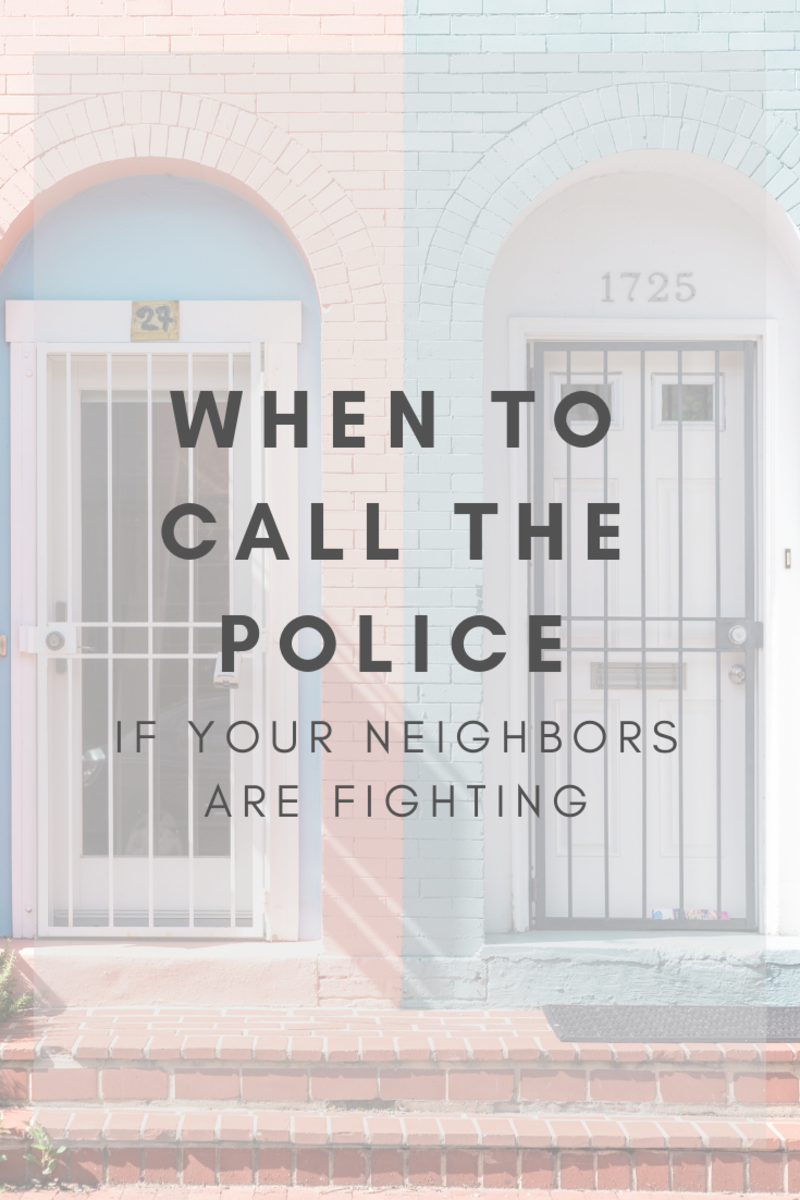The Argument Against the Police
Introduction
Protests have gripped the United States for weeks now. George Floyd’s unjust death at the hands of police has enraged the nation, and for good reason, too. Thousands of deaths, both publicized and unpublicized, have been endured in recent years – particularly by minority communities – with very little being done to prevent such violence in the violence. Decades of politicians promising police reform have done next to nothing. Incrementalism has only further frustrated a grieving people. Now, after years of petitions, protests, riots, reforms, and more, many Americans have lost all faith in their police. What exactly, then, are their arguments against the police – not just as individuals, but as an entire institution, and what do protestors want to see created in place of the police?
The speed with which the general population has been radicalized against the police is truly breathtaking. Many may remember the viral video meme of activist Jessica Disu declaring (on a Fox News program, no less) that “we need to abolish the police”. When she boldly said that back in 2016, she was ridiculed for it wide and far, but in 2020, it can be firmly said that she was way ahead of her time. A seemingly insane declaration just four years ago has since become a rallying cry for what might be hundreds of thousands of Americans. Perhaps this should not even be too surprising. The American Left – the real American Left, of AOC and the DSA instead of corporations and the Clintons – has seen a massive resurgence in the last decade. Between the Great Recession, the Occupy Movement, the growth of inequality, the lack of structural change under Obama, the election of Trump, and the presidential campaigns of Bernie Sanders, the Left has gained evermore momentum. Now, in 2020, with widespread outrage over government responses to COVID-19 and the nationwide protests over the death of George Floyd, leftist rhetoric has skyrocketed its way into the mainstream. The kids don’t want to play ball with the neoliberals who routinely promise change to gain power and then do precisely nothing to make good on those promises. They want to dismantle the multinational corporations, eat the rich, and abolish the police. But why, exactly, is the last demand in particular so popular? And how, for that matter, does anyone expect to totally get rid of an institution as ingrained in our society as the police?

How All Cops are Bastards
In an actively racist society, it is not enough to not be racist; we must be actively anti-racist. Those words have been shouted from the rooftops before, and they should be again. American society has long been stratified, and the police serve to keep that stratification intact. The state maintains a higher police presence in black, Latino, indigenous, and other neighborhoods than in white ones. Arrest quotas, which are very much still a thing, are mostly filled in these higher-policed neighborhoods. Couple that with the hundreds of stories and video evidence of white cops being overtly racist (recently with arresting protestors of color while leaving white protestors untouched), and you’ve got a self-perpetuating cycle of oppression. Cops who speak out about this typically get themselves fired, too, (see sources below) and the police have a well-documented (again, see sources) “blue wall of silence” and a culture that discourages speaking up about the wrongdoings of colleagues. They know they perpetuate racism and have a culture of corruption, and they have silenced countless people for exposing them for it, leaving the others to fall silent on their own. But, of course, if you have one bad cop, and a thousand good cops keeping their mouths shut, then you have a thousand and one bad cops.
This isn’t – or at least shouldn’t be – a solely leftist position, either. The same arguments fit into capitalist theories just as snugly as they do anti-capitalist ones, and all the grievances of the last paragraph have been raised by such a wide variety of people that they can only really be defined by being on the “libertarian” half of the political compass. Indeed, among liberty-leaning groups from De Leonists to Rothbardians, anti-police sentiment has been popular for years now, although such sentiments are definitely still sporadic and not yet accepted by all. A popular formal argument online comes from none other than Dr. Robert Higgs, an economist and historian of the Austrian school of economics – a school affiliated with the radically libertarian, but also radically right-wing, ideology of anarcho-capitalism. His argument goes as thus:
“The ‘good/bad cop’ question can be disposed of decisively. We need only consider the following:
- Every cop has agreed, as part of his job, to enforce laws; all of them.
- Many of the laws are manifestly unjust, or even cruel and wicked.
- Therefore, every cop has agreed to act as an enforcer of laws that are manifestly unjust, or even cruel and wicked.
There are no good cops.”
Thus, all cops – even your kindly uncle cop or that stranger cop who helped shovel out your car – are ultimately bastards, because they all participate in an unjust system and agree to enforce unjust laws. But can either this fundamental issue or the ever-prevalent prejudice in police departments be fixed without making the unfathomable action of abolishing the police? In short, no. Police reform is a false promise. But why?
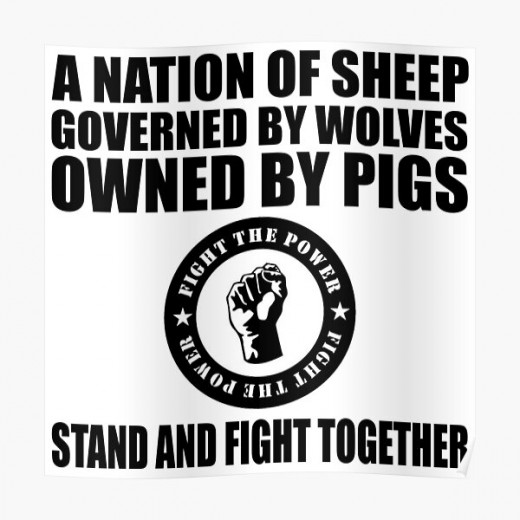
Why Police Reform is a False Promise
Joe Biden has called to provide police departments with funding for reform, and Donald Trump recently signed an executive order to fund more police training. Such measures are mere performances. Police reform has a long and heartbreaking history of utter failure. And, if we remember the story of the 75-year-old man in Buffalo, NY who was pushed by police and left bleeding from his head, we can see precisely why police reform doesn’t work: cops overwhelmingly stand with their own “bad apples”. As the saying goes, of course, a few bad apples spoil the whole bunch, and when two cops were suspended because of the pushing incident, 57 riot cops resigned in solidarity with their colleagues. A similar thing happened in 2014 when the cop who killed Eric Gardner was fired, with the NYPD staging a slowdown to protest the firing. It’s worthy to note that there was no noticeable rise in crime during this time. In Baltimore, as well, after the death of Freddie Gray, the police union resisted reform with slowdowns. After the indictments of several of their members, they doubled down on this resistance. Police all across the country have been consistently resistant to reform. They will not give up their power; they will have to have it taken from them.
Simply put, the job of policing attracts exactly the kind of person who shouldn’t be doing such a job. Longer and more thorough training would surely help. Better background checks on officers, again, would surely help. Tougher punishments for cops who step out of line would help. A stronger emphasis on de-escalation training would help. But all such measures have already been implemented in one form or another by police departments scattered all across the country. And, still, they’re absolutely out of control. American police have been killing about 1,000 citizens every year for at least the last several years. An estimated 9,300 people had been arrested in the George Floyd protests as of June 3rd, so as of the time of this writing, that number has definitely passed 10,000. And that’s not even mentioning race. Let’s not forget that blacks and other minorities suffer far higher arrest and conviction rates, as well as tougher sentencing and more neighborhood policing, than whites. This is the kind of stuff that training and reform just isn’t going to fix. Hell, the cop who killed Rayshard Brooks – a black man who fell asleep in his car at a Wendy’s parking lot – had received a full nine hours of de-escalation training on April 24th, less than two months before the murder. It cannot be reiterated enough that cops are corrupt, and many are racist, and they are totally resistant to any meaningful change. The police are the problem. What, then, is the solution?
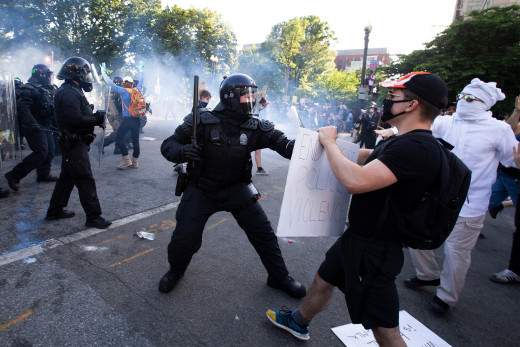
A Feasible Solution & Conclusion
It’s completely understandable that some people are apprehensive about abolishing the police altogether. Indeed, the police have existed as a fundamental American institution for well over a hundred years, and abolishing them would enter into uncharted territory. Minneapolis, per the resolution of its city council, recently elected to enter into this uncharted territory, and so, an examination of their approach is clearly worthwhile. Minneapolis isn’t just kicking its officers to the curb. Rather, they’re slowly going to be experimenting with and implementing what they call a “community-led” model of law enforcement. This process is expected to take an entire year, but by the end of that year, the city wants their current police department disbanded in favor of a system where different social services teams respond to different kinds of emergency calls, sending specialists to calls pertaining to their specialty and likely reserving armed police for dangerous situations. It’s a model already practiced in some form in countries like Iceland – which has had a total of one police killing since 1945 – and it seems a promising option for a city that has long been ravaged by police brutality.
This is, as previously stated, relatively uncharted territory for a major city such as Minneapolis, but it isn’t totally untrod ground. In the Capitol Hill Autonomous Zone, in Seattle, WA, police have been ousted from several city blocks for nearly two weeks now, with widespread community solidarity and a shocking drop in violence as a result. In Camden, NJ, most of the police force was fired back in 2013, and since then, violent crime has been almost cut in half. The few officers left put an emphasis on positive interaction with the community, and deadly force has become a rarity. In Rojava, the Kurdish-controlled autonomous region of Syria, comprised of at least 4,600,000 people, two separate security/civil defense forces serve to police and protect the communities, made up of volunteers who are typically committed to defending their neighborhoods from terrorist attacks or other disruptions of the peace. These volunteers are trained for months and are taken care of by the community, as communal strength is a large part of Rojava’s founding philosophies of social ecology and democratic confederalism. The police are explicitly tasked with defending, rather than exploiting or combating, the citizens of their communities, and the entire system is dedicated to the prevention of hierarchy. Hierarchy is power, and power corrupts, and the revolutionaries of Rojava have had enough of corruption. Jumping back across the globe, it is clear that the paths ahead for our brutalized American cities are numerous. It is clear, however, that not only is a different world possible, but it is, in fact, necessary.

Sources
https://fee.org/resources/there-are-no-good-cops/
https://www.aljazeera.com/news/2020/06/people-arrested-george-floyd-protests-200603165051758.html
https://www.cnn.com/2020/06/09/us/disband-police-camden-new-jersey-trnd/index.html
https://roarmag.org/essays/police-abolition-and-other-revolutionary-lessons-from-rojava/
https://buffalonews.com/2020/06/05/57-members-of-buffalo-police-riot-response-team-resign/
https://www.statista.com/statistics/585152/people-shot-to-death-by-us-police-by-race/
https://www.youtube.com/watch?v=ojXxz1u1R4c
https://www.courthousenews.com/florida-police-officer-says-he-was-fired-for-whistleblowing/
https://www.nj.com/camden/2018/10/cop_files_whistleblower_suit_claiming_he_was_punis.html
https://nypost.com/2018/07/25/cop-fired-after-charging-police-chief-and-mayor-with-forgery/
https://shadowproof.com/2020/06/13/dissenter-weekly-whistleblower-cops-blue-wall-silence/
© 2020 JW Barlament

